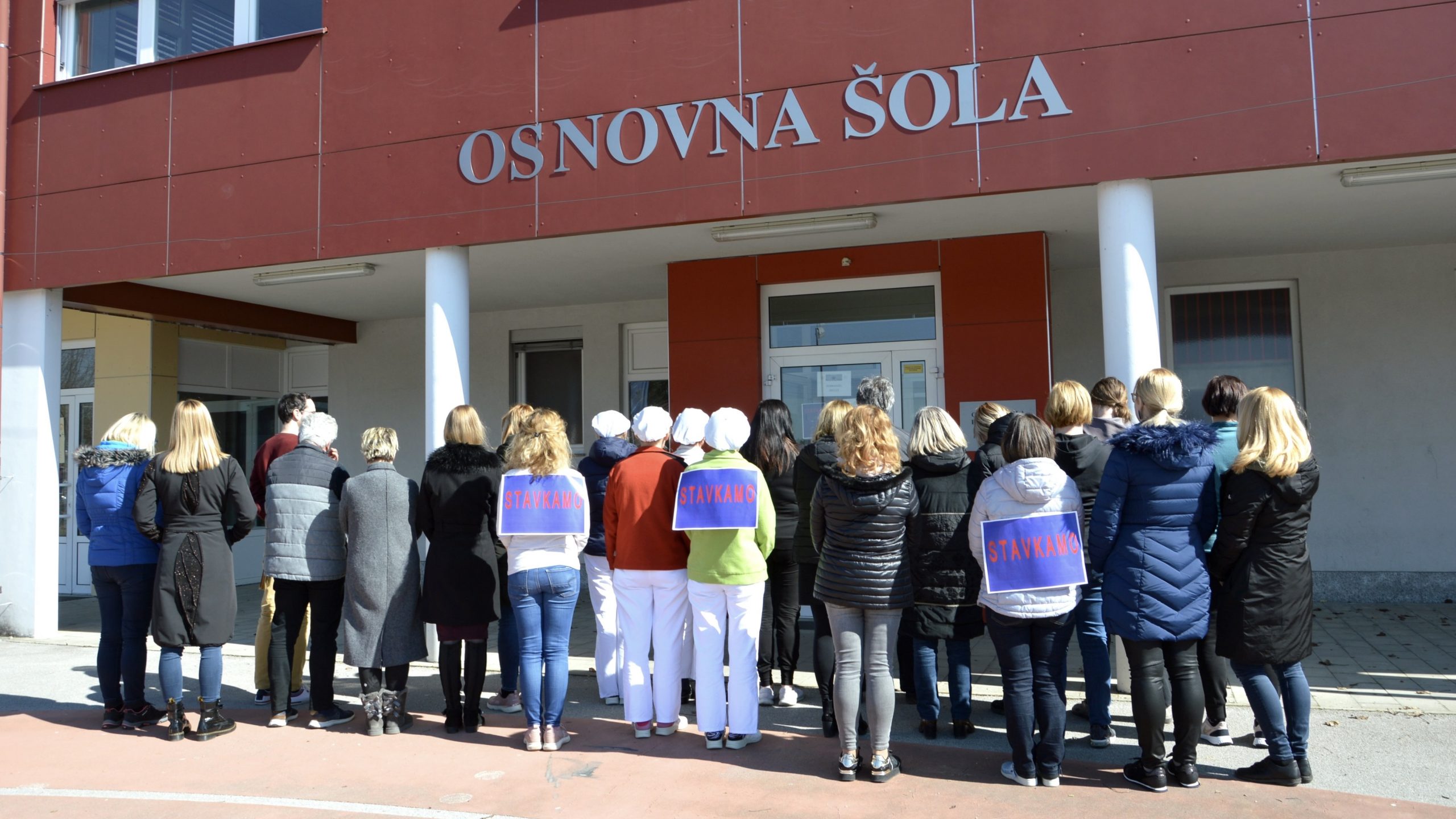Forty thousand workers from the education sector in Slovenia went on strike on March 9, after the Ministry of Education failed to act on repeated requests to bring salaries in line with inflation and recognize the contribution of education workers during the COVID-19 pandemic. According to the Trade Union of Education, Science and Culture of Slovenia (SVIZ), the strike spread over 652 education institutions, including kindergartens, schools, students’ homes, and universities, affecting more than half a million people.
SVIZ has been calling on Simona Kustec, the Minister of Education, to begin collective negotiations for months, as they wanted to discuss pay rises, remuneration of work during COVID-19, and the possibility of an overall reform of the pay system, said trade union officials. Because of the current salary model in the public sector, a large number of workers are paid less than minimum wage. Approximately 13,000 workers – mostly cooks, caregivers for children with disabilities, janitors and cleaners – have trouble covering essential needs because of low salaries. Trade unions and left collectives warn that this shows the government’s utter disregard for the important work they do.
Similar grievances concerning the current salary system and wage scale were recently raised by workers in the health and care sectors, who went on strike themselves mid-February. Several health and care trade unions, including the trade union confederation Pergam, expressed their support for the educators’ strike, citing a need for fair payment of essential work. In a public statement, Pergam also said that the recent strikes in the public sector should be taken as a warning of a wider social mobilization to the government in case it doesn’t take more decisive steps to address people’s demands.
“Low pay for important work, as well as working conditions in which workers fulfill their tasks, are a barometer of the standard and level of workers’ struggle and solidarity, not only in the public sector, but in the country as a whole,” said collectives CEDRA and Rdeča pesa in a public statement issued on the day of the strike in education. Similar expressions of support came from the left party Levica, which backed the strike demands in full.
V Levici podpiramo splošno stavko v vzgoji in izobraževanju ter vsem zaposlenim, vzgojiteljicam in vzgojiteljem, učiteljicam in učiteljem ter vsem ostalim delavcem na področju šolstva izrekamo podporo ter se jim solidarno pridružujemo pri njihovih stavkovnih zahtevah. pic.twitter.com/1x9K00hBbM
— Levica (@strankalevica) March 9, 2022
Despite repeated invitations from the trade union, Kustec had been downplaying their requests and took part in attempts to obstruct the strike, said SVIZ officials. Among other things, they pointed out that the minister backed up the spreading of misinformation on salaries in the education system through mainstream media, and insisted on not paying the workers the time spent on strike. While the last decision does not fall under the jurisdiction of the ministry, the attempt to undermine the workers’ constitutional right to strike shows Kustec’s utter disregard for the sector she is in charge of, said Branimir Štrukelj, general secretary of SVIZ, during a press conference.
While the ministry underplayed the strikers’ demands, the workers found support from other groups, including parents and headmasters. Of the 270,000 children usually enrolled in kindergartens and primary schools in Slovenia, only 11,000 attended class on the day of the strike, a figure that indicates that parents are ready to stand behind teachers and caregivers.
On the other hand, several headmasters and headmistresses publicly shared their criticism of the ministry’s approach to the workers grievances on the day of the strike. In addition to backing the workers’ request for better pay and working conditions, they warned that they themselves were being sidelined in key decisions taken by the ministry. According to them, while they are supposed to play an active role in how education is organized, they were ill-informed about steps decided on the level of the ministry and often disagreed with the rationale behind them.
In a last attempt to pacify the situation, the minister invited representatives of SVIZ, together with officials from other trade unions in this sector, to attend a meeting with her on 15 March. While SVIZ accepted such an invitation in good faith, guided by the principle “better late than never” as they said in their response, the trade unionists expressed doubts about the minister’s apparent change of heart. Because of this, they asked for additional assurances that the conversation which will take place on Tuesday will, in fact, be a concrete attempt to negotiate the strike demands rather than another attempt to water down the industrial action.
If that commitment fails to materialize, the workers will be ready to continue their mobilization until the ministry agrees to honor its responsibilities towards everyone employed in the sector, assured SVIZ trade union officials.





